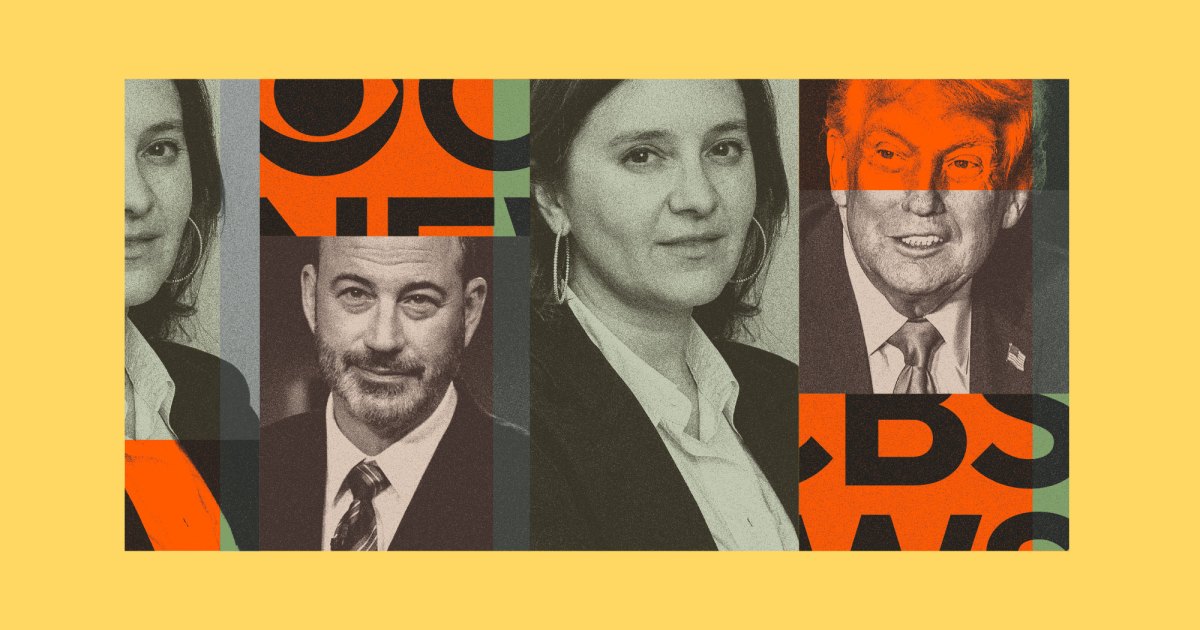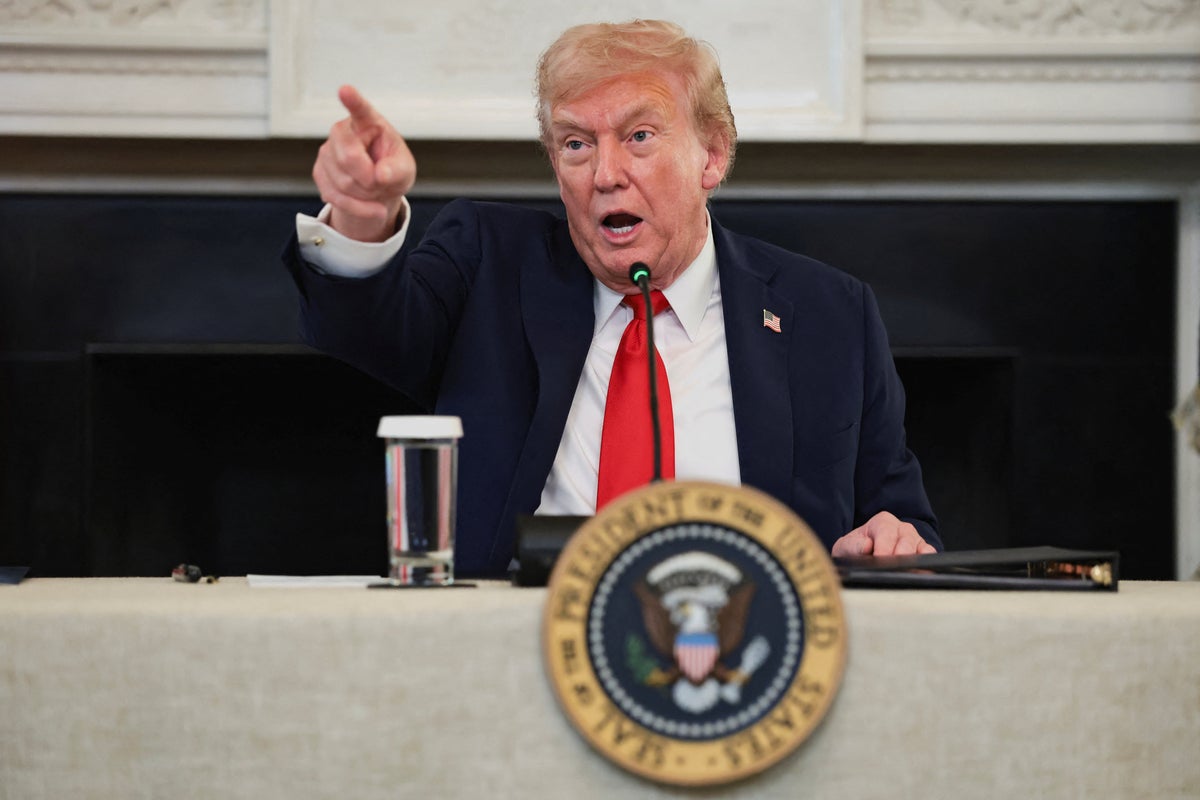“Should I start looking for work in Canada?” a friend in the Midwest, who is not easily flustered, texted me the week that Kimmel was suspended, and I could see why. Sure, it was just a TV network suspending a comedian, and it was also before the president declared that the military would use “full force” in “war-ravaged” Portland. But to a lot of people who aren’t otherwise following the crazy, this one hit home. The most basic American freedom, the first one enumerated in the Constitution, the right to say whatever the hell we please, including and especially about the powerful, was no longer reliable—for a celebrity employed by one of the world’s biggest media corporations, and thus for any of us.
This was different from the other moments of self-censorship we’ve seen lately, most recently when the Washington Post summarily fired columnist Karen Attiah, apparently for saying less-than-reverential things about white men. The Post justified this by claiming Attiah’s comments “potentially endanger the physical safety of our staff”; so did Disney, which let it be known that Kimmel just needed to “turn down the temperature” because people were getting death threats. (When a mob threatens violence, it’s the recipient who needs to turn it down.)
Kimmel did end up back in his job, and he celebrated in the most decent possible way. That’s good news, because the episode seems to have reminded Disney executives that Trump and MAGA are not nearly as popular as they think.
But what remains is that sinking feeling that bullying works—far better than anyone could have expected. All Federal Communications Commission Chair Brendan Carr had to do was growl that it’d be a shame if something happened to the license of stations airing Kimmel. Never mind that Carr doesn’t have the legal power to do anything about those licenses on that basis. The mere hint was enough.
Was this authoritarianism? Not exactly, if by authoritarianism we mean coercion by the state. This was something squishier: The state just leveraged fear and self-interest to get what it wanted (and then lied about it—just a joke! Haha). No outright coercion required. Call it anticipatory obedience… or maybe just the soft tyranny of like-mindedness. As Gore Vidal once put it, “They don’t have to conspire because they all think alike.” Not that every CEO is MAGA—not by a long stretch—but you could tell how relieved many of them were when Trump took a meat ax to anything smelling of “woke.”
Thus we got David Ellison, the new owner of Paramount and CBS News, paying $150 million for the anti-woke newsletter startup The Free Press and hiring its founder, Bari Weiss—who zero experience in television—as editor in chief (and, in case anyone missed the point, having her report directly to him, rather than to, say, the president of the news division, or CBS itself.
Mother Jones has substantially more paid subscribers than Bari Weiss’ The Free Press, so perhaps someone should put us in charge of a TV network.
Ellison—unlike his father and business partner, Larry Ellison—is not a Trump acolyte (nor, for the record, is Weiss) , but he is certainly signaling that what was wrong with CBS was that it was somehow too far left. Weeks before hiring Weiss, Ellison also installed Kenneth Weinstein, the former head of the conservative Hudson Institute, as CBS News’ ombudsman. Weiss’ first hire as deputy editor was Adam Rubenstein, who edited the infamous Tom Cotton New York Times op-ed, which argued that Trump should invoke the Insurrection Act and unleash the military on Black Lives Matter protesters. (For the record, I think the paroxysm of recrimination against Rubenstein at the time was out of proportion to the flaws in the op-ed, but also, after five years, the backlash against overheated moments of 2020 has pretty much run its course.)
Ellison called The Free Press “one of the most dynamic news organizations in the country, one that resonates with audiences of all ages and perspectives… Their dedication to independent and fearless reporting has won the devotion of some 1.5 million readers—more than 170,000 of whom are now paid subscribers.” (Mother Jones has more than 220,000 paid subscribers and a total audience of about 10 million, plus an editor-in-chief who has decades of reporting and editing experience and a shelf full of awards and would do a killer job running a network news division. But we were not for sale, so I guess Ellison had to settle.)
Where was I? The Trump crew, it sometimes seems, can barely believe its luck at how well their “nice little network you got there” shakedowns have worked, and how quickly. But they’re certainly running with it, and why not? They don’t have the capacity to police all of the people (or even all of the comedians, all of the law firms, all of the universities) all of the time. Much easier to simply hint that there are some things that might get you into trouble, and leave everyone guessing—and self-censoring. FCC commissioner Anna Gomez says she regularly hears from broadcasters who wonder what they are “allowed” to report on.
Soft censorship is when we don’t know which station isn’t airing a story, which TV writer is not crafting a joke, because it’s just not worth the aggravation.
Network television is the perfect target for Trump. He knows it matters because it made him rich and famous, and also because TV news still carries information to a lot of people who aren’t news junkies. And, just as important, the networks are sitting ducks. Their business model is imploding as viewers and advertisers migrate to digital platforms. They people running these companies are not laying a foundation for the long term (let alone stand up for freedom of the press or democracy). They’re looking for an exit, a strategy to consolidate and unload. Nextstar plus Tegna, Paramount/CBS plus TikTok, CNN, and Warner Brothers—deals, deals, deals, all to put more media power in fewer hands.
From the vantage point of the dealmakers, the Trump administration looks like a business opportunity. They’re not going to slow down consolidation to protect media diversity—they’ll just ask for a vig and some light censorship. Surely caving now won’t mean that the next demand will follow, and then the next one after that. Surely there is nothing to be learned from the stories of media moguls like Mikhail Lesin, who founded Russia Today and was one of Vladimir Putin’s favorites until he wasn’t, and then he died under mysterious circumstances in a 1,200-dollar DC hotel room littered with minibar bottles.
But the men and women in the corner offices aren’t the only ones who get to decide things. In the military, they say the enemy has a vote—an army’s best-laid plans are only as good as the other side’s moves. In business, consumers get a vote. They exercised that vote with Disney, and with Tesla, and they might exercise it again with CBS, or Paramount, or whatever they’ve got in mind for New TikTok. Consumer boycotts by themselves will not stop authoritarianism, but they provide a powerful counterpoint to squishy self-censorship.
And there’s another thing you can do with your dollars, beyond withholding them from those who insult your values: Choose to spend them where you think they’re better invested. Corporate media has been on a trajectory to consolidation and self-censorship for decades—Mother Jones was founded nearly 50 years ago because of this, and we are still here because hundreds of thousands of independent-minded readers have kept us going. You can’t get to us by intimidating our corporate parent or shareholders, because there aren’t any. Our work exists because you believe in it.
And guess what: While an annual subscription to The Free Press’ newsletters and podcasts will run you about $80, over here $19.95 will get you a daily newsletter and a gorgeous print magazine and two weekly podcasts and the knowledge that you’re keeping truly independent and fearless reporting—dare I say the free press—alive. Can’t afford that either? No worries: We know the world needs truthful reporting at a time when so much of it is hidden behind a paywall, and so we make all of our journalism available for free on our website and any social channel of your choosing. Read, listen, and watch—and donate when you can. Thank you.














